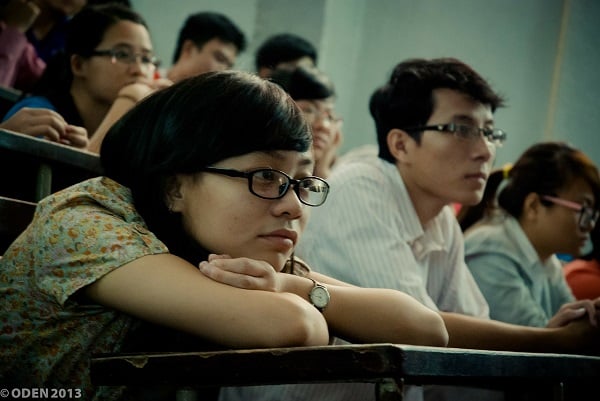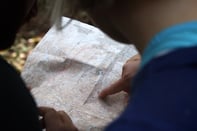Published on
CPE’s Shift to the Core Creates More Collaboration Opportunities for the English Language Institute

The transformation of UBC Continuing Studies (CS) into UBC Extended Learning (ExL) began over three years ago as part of the university’s commitment to Career and Personal Education (CPE). CPE is a pillar of UBC’s Flexible Learning strategy, developed in response to the multiple external forces shaping higher education in the 21st century. It aims to expand career-applied and academic offerings for working professionals and students of all ages and backgrounds.
Although UBC’s English for Academic Purposes will likely remain the most popular English Language Institute (ELI) program, CPE directly reflects the nature and aspirations of the majority of other English language students, lifelong learners who come from many different backgrounds and age groups, and who for the most part, are studying English to help them better participate in the global economy. The transition to Extended Learning has entailed renewed support for the ELI, and is beginning to shape an exciting way forward, particularly in the areas of greater engagement with other parts of the university, and with educational technology.
The initial impact of the transition on the Institute was largely unremarkable. Nine months ago, when announcing the change to ELI staff and instructors, UBC’s Vice Provost of Academic Innovation said, “the ELI is doing almost everything right.” It was a strong and reassuring endorsement of the ELI’s existing activities, which also recognized the opportunity for measured change and development.
Despite the complex challenges of many aspects of the transformation, ExL swiftly put into place the initial support to develop and expand the work of the Institute. Most effects of this support—such as further diversifying the ethnic composition of the student body, or revising and upgrading IT systems—take time to work through. Others are already visible. For example, faculty confidence in ExL’s direction has enabled the institute to begin offering Teacher Development Programs in close collaboration with the Faculty of Education. As well as being one of the growth markets for English as an additional language, this is a marvellous opportunity to showcase ELI’s teaching excellence, and for instructors to contribute their many years of expertise to colleagues in other countries, and to younger generations of English-language instructors.
Opportunities have also opened up within ExL. Another key growth area in the industry, one that directly coincides with ExL strategy, is high school programs. Starting in summer 2018, the ELI will provide the English as an Additional Language component of ExL’s Future Global Leaders program, a highly successful pre-university summer program for 15- to 18-year-olds.
A quite unexpected, and particularly encouraging ExL benefit for the ELI, was the appointment of its Executive Director, a computer scientist who also serves as UBC’s Senior Advisor for Digital Learning Strategy. Mainly through corpus linguistics, computer science is already one of the most influential sources of innovation in language learning, from academic word lists to sociolinguistic techniques of discourse management. The new boss immediately understood the potential of, for example, online placement systems that would make the Institute far more efficient, but more excitingly in these times, experiments with educational technology in the language classroom.
The postsecondary English language education world in particular, does not fit into the conventional education model of hierarchical year groups and standardized curriculum—the model educational technology has been moving away from. Realizing the possibilities of, for instance, virtual reality, personalised digital learning and adaptive software require the research and computational resources of a major institution. They may also reduce marking loads and provide instructors with more time to attend to students’ individual learning, expanding opportunities to provide that most effective of educational resources: the craft of the teacher.
UBC Extended Learning is building on the strengths of Continuing Studies, very much including the English Language Institute, and continues to provide outstanding flexible learning experiences, but with an extended mandate to support faculties in growing and expanding UBC’s offerings related to Career and Personal Education. In January 2018, the ELI will launch a new program, the UBC-Vancouver English Experience program, largely based on experiential learning and project work focussed on both the city’s and the university’s cultural and academic treasures. The target market is career and personal education learners.
Author Perspective: Administrator



